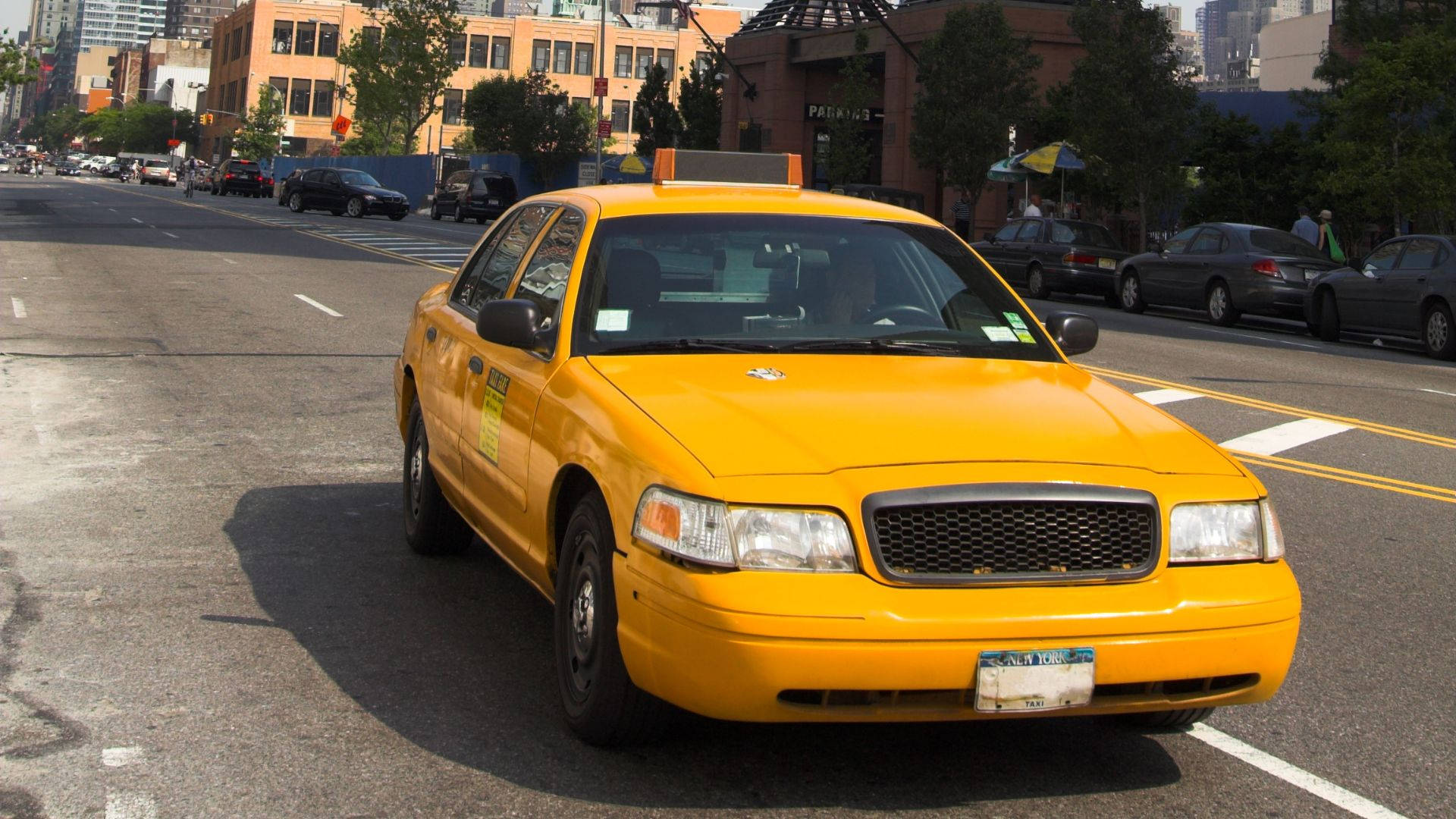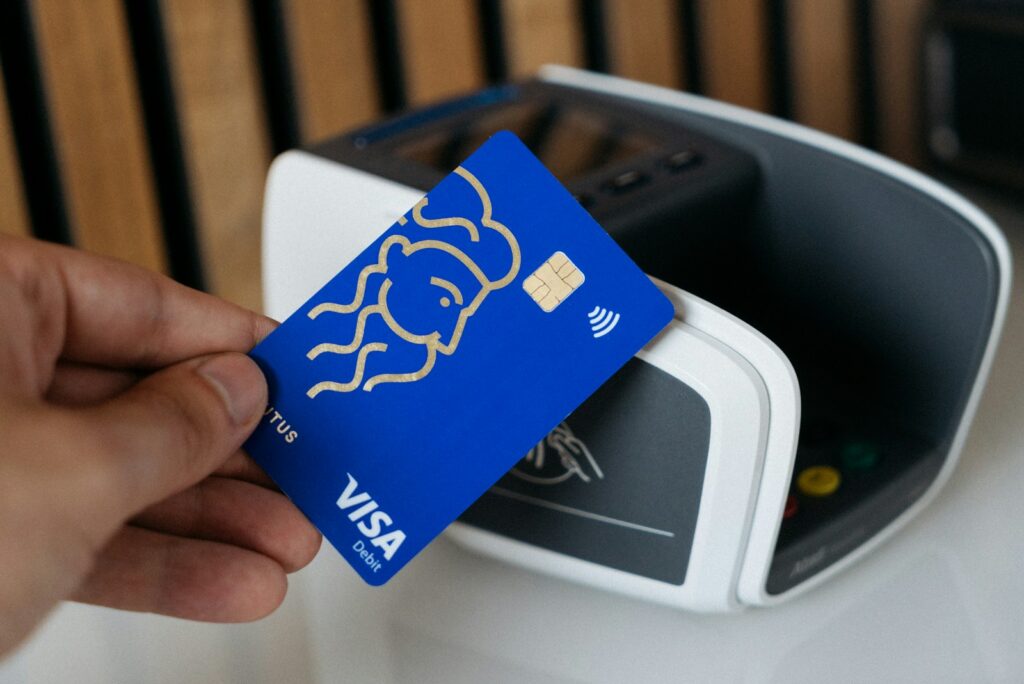
With summer festivities, big-ticket events like the Olympics and Euro 2024, and the Taylor Swift frenzy set to sweep the continent, Europe is buzzing with travelers. Unfortunately, where there are tourists, there are also scammers waiting to exploit them. From the bustling streets of Paris to the scenic alleys of Istanbul, being informed can keep your travels joyous and scam-free. Every year, millions of travelers lose money, personal information, and precious vacation time to clever cons designed to catch you off guard.
The good news is that most scams follow predictable patterns, and once you know what to watch for, you can protect yourself and enjoy your trip with confidence. Reader’s Digest has always championed practical, actionable advice, and nowhere is that more crucial than when navigating unfamiliar cities. Our aim here is to empower you with the knowledge to spot these cunning tricks from a mile away, transforming potential pitfalls into mere bumps in your exciting European adventure.
Scams in Europe vary significantly from country to country — what you might encounter in Prague could be entirely different from what happens in Mallorca. However, some scams, such as pickpocketing, are widespread. To safeguard your trip, you must familiarize yourself with specific scams prevalent in the areas you plan to visit. We’ve compiled a comprehensive guide to the most common deceptions, arming you with the insights you need to stay one step ahead of the tricksters.

1. **Phony Tickets and Fake Ticket Sellers: Don’t Let Your Journey Get Derailed Before It Starts**Imagine arriving in a bustling European city, fresh off your flight, excited to explore. You head to the train station, perhaps a bit disoriented by the new surroundings, and suddenly, a friendly face approaches, offering to help you with tickets. They might even have what looks like official passes in hand. This seemingly helpful gesture can quickly turn into a costly mistake, as scammers prey on newly arrived tourists, selling them fake or invalid tickets for bus, metro, or even major attractions.
These con artists often position themselves strategically at city entry points like train stations, bus terminals, and popular tourist sites, knowing that travelers are often tired, perhaps jet-lagged, and eager to get moving. They might offer “deals” or claim that official booths are closed or too busy. “Thieves may try to sell you fake or invalid tickets for bus and metro systems. If you’re in Paris for the Olympics, purchase transit tickets only from official ticket booths or automatic vending machines, the city’s transit officials advise.” It’s not uncommon for them to even tamper with official machines, like blocking the change slot, to collect your forgotten coins after you leave.
The allure of a quick transaction or a slightly cheaper price can be tempting, but the consequences range from losing your money to being denied entry to an attraction or even fined for riding public transport without a valid ticket. Unofficial tour guides or street vendors might also try to sell you “discounted” museum tickets or tours that are either fake or charge exorbitant fees compared to the official price. Your precious vacation time is too valuable to waste on these avoidable headaches.
The solution is straightforward and effective: Always purchase your tickets directly from official sources. For public transport, seek out marked ticket booths or automatic vending machines. For attractions, use the official website or the dedicated ticket windows at the venue itself. Politely but firmly decline any assistance from strangers who approach you, even if they appear well-intentioned. A quick online check of opening hours and official vendors before you leave your accommodation can save you a world of trouble and keep your travels running smoothly.

2. **Distraction Pickpocketing: The Art of the Diversion**This is a classic for a reason: it works. Scammers are masters of misdirection, creating a sudden, unexpected event to seize your focus while an accomplice makes off with your valuables. Picture this: you’re gazing at a breathtaking landmark, perhaps the Eiffel Tower, when suddenly someone bumps into you, spilling coffee or a messy condiment all over your shirt. Your immediate reaction is to deal with the unexpected mess, and that’s precisely when the second scammer, often working in tandem, quietly unzips your bag or slips a hand into your pocket.
“This classic distraction technique works because your brain can only focus on one urgent thing at a time.” It’s not just spills; the methods are varied and cunning. You might encounter someone trying to tie a “friendship bracelet” around your wrist, engaging you in conversation and demanding payment, while their partner covertly targets your belongings. Or perhaps someone thrusts a clipboard with a petition in front of you, claiming to support a charity for the deaf, pressuring you to sign and donate. While you’re distracted by the intense interaction, your wallet or phone becomes an easy target.
Even more unsettling are the “baby doll” or “turkey drop” scams, where a scammer might “accidentally” drop an item—sometimes even a baby doll—right in front of you. As your natural instinct to help kicks in and you bend down, another thief quickly takes advantage of your lowered guard. The key takeaway from all these scenarios is that any sudden, unexpected commotion or overly friendly approach in a crowded area should trigger your internal alarm system. “Treat any commotion (a scuffle breaking out, a beggar in your face) as fake — designed to distract unknowing victims.”
To protect yourself, vigilance is paramount. Always keep your phone and wallet in secure front pockets with zippers, or use a cross-body bag that remains within your sight at all times. When strangers approach with clipboards, bracelets, or any proposition that requires your immediate attention, keep walking and offer a firm “no thanks” without breaking your stride. If you feel jostled or notice something spilled on you, immediately do a quick scan of all your belongings before addressing the mess. Your awareness is your best defense against these cunning diversion tactics.

3. **Taxi Scams and Rideshare Impostors: Getting Where You Need to Go, Safely**After a long flight, all you want is a smooth, direct ride to your hotel. Unfortunately, this vulnerability is precisely what scammers exploit through various taxi and rideshare tricks. You might encounter an unofficial driver at the airport entrance, offering a ride with a “broken” meter and a “fair price” that is anything but. Or, a licensed taxi driver might take an unnecessarily long, scenic route, run a rigged meter that clocks up fares at an alarming rate, or even attempt to shortchange you by insisting you handed over a smaller bill than you actually did.
“Taxi scams: These are prevalent and vary widely but commonly include drivers taking unnecessarily long routes, claiming the meter is broken, or giving incorrect change while insisting you provided a smaller bill than you did.” It’s a frustrating situation that can leave you feeling ripped off and disoriented before your trip has even truly begun. The key is to be acutely aware of these common ploys and to approach transportation with a clear strategy.
A newer, yet equally insidious, variation of this scam involves rideshare impostors at airports. “Your Uber is three minutes away, but someone walks up holding a phone and asks, ‘Are you Sarah?’ Before you can think, they’re loading your bags and driving off—except this isn’t your real driver.” These impostors often lurk in pickup zones, listening for names or watching for travelers checking their phones, ready to intercept unsuspecting passengers. Once you’re in their car, they can charge arbitrary, inflated fares or, even worse, take you somewhere unsafe.
To navigate this labyrinth of potential scams, always prioritize official channels. At airports, head directly to designated taxi stands or use reputable ride-hailing apps like Uber or Bolt. Crucially, “Never get into a vehicle until you’ve verified every detail matches your app: license plate number, car make and model, and the driver’s photo.” Before starting any taxi journey, confirm that the meter is running, and if using a rideshare, enable any available PIN verification features for an added layer of security. Opting to pay with a credit card whenever possible also helps create a verifiable digital trail and safeguards against incorrect change disputes, ensuring your journey is both safe and transparent.

4. **The “Found” Item Gambit: When Good Samaritans Aren’t What They Seem**The inherent kindness of strangers is often a beautiful part of travel, but scammers ruthlessly exploit this with the “found” item trick. Imagine someone picking up a ring from the ground right in front of you and asking, “Did you drop this?” When you say no, they might examine it closely, point out a “pure gold” mark, and then offer to sell it to you for a “bargain” price. This “bargain,” of course, is significantly more than the cheap trinket is worth, leaving you with an overpriced piece of costume jewelry and a lighter wallet.
A more insidious variation involves a wallet. “Is this your wallet? Scammers present a wallet and ask if you dropped it. They’ll try to get you to touch it, then their accomplice will appear and accuse you of stealing and threaten to call the police.” This high-pressure tactic is designed to make you panic. They’ll demand money to make the “problem” disappear, or even ask you to prove you weren’t stealing by showing your own cash—only to snatch it and run. The entire scenario is a carefully orchestrated play to exploit your honesty and fear.
Another variant, sometimes called the “turkey drop” or a similar “baby doll” approach, involves a scammer deliberately dropping something of apparent value, or even just an object, in front of you. Your natural inclination is often to help, perhaps by picking it up. While your attention is diverted, an accomplice works quickly to pickpocket your belongings. This trick relies on your helpfulness and the momentary lapse in vigilance that comes with reacting to an unexpected event.
To safeguard yourself against these deceptive ploys, cultivate a healthy skepticism when anyone approaches you with a “found” item. Politely but firmly state that it’s not yours and continue walking. Avoid touching any items they present, as even that can be used as “evidence” in their fabricated accusations. Remember, genuine lost-and-found situations typically don’t involve aggressive sales pitches or demands for money, and your best defense is to simply disengage from the situation entirely.

5. **Highway Pirates and Car Rental Scams: Protecting Your Wheels and Valuables on the Open Road**Exploring Europe by car offers unparalleled freedom, but it also opens a new avenue for cunning scammers known as “highway pirates” or those perpetrating car rental scams. Imagine you’re driving along a scenic route, perhaps in regions like the Costa Brava, when suddenly another vehicle signals frantically, indicating you have a flat tire or some mechanical trouble. Your natural instinct is to pull over and check, right? This seemingly helpful warning is often a carefully orchestrated trap.
“Thieves wave your vehicle over for assistance with a flat tire or mechanical trouble, but as you help, an accomplice makes off with possessions in your unlocked vehicle.” As one scammer distracts you with the supposed car issue, their partner quickly and silently raids your vehicle, snatching bags, electronics, or anything left unsecured. These criminals often target rental cars specifically, as they frequently “display a large sticker on the back of the vehicle,” making them easy to identify as belonging to tourists who may be less familiar with local warnings or more likely to carry valuables.
The danger isn’t limited to active stops on the road. “At scenic overlooks and other tourist spots in Spain, there have been numerous reports of thieves breaking in and stealing valuables from parked rental cars.” While you’re enjoying a beautiful view or stretching your legs, your parked rental can become an easy target if left unattended or with visible valuables. These aren’t small-time crooks; “Criminals preying on tourists may be part of major crime rings,” operating with professional precision to maximize their illicit gains.
To safeguard your journey, exercise extreme caution when driving a rental car. “Do not stop for strangers, even if they indicate something like a flat tire.” If you suspect an issue, drive to the next service station or a well-lit, populated area to check it yourself. Always keep your vehicle locked, even when you’re just stepping away for a moment at a rest stop or scenic overlook. Crucially, never leave valuables visible in your car; if you must leave items, lock them securely in the trunk or take them with you. Your vigilance on the road is key to a smooth and unblemished European adventure.

6. **The “Helpful” Local: Beware of Unsolicited Assistance**In a new city, a friendly face offering assistance can be incredibly welcome. However, some of the most cunning scams unfold under the guise of helpfulness, turning a seemingly kind gesture into a perilous trap. Scammers masquerade as concerned locals, ready to “assist” you in moments of perceived confusion, but their true intention is to exploit your trust and steal your valuables. This tactic is particularly prevalent around ATMs, public transport hubs, and even when you’re simply trying to get your bearings.
“The ‘Helpful’ Local: Thieves posing as concerned locals will warn you to store your wallet safely — and then steal it after they see where you stash it.” This is a classic bait-and-switch. They might even brazenly “find” your wallet on the ground and return it to you, only after discreetly removing some cash. If someone offers to “help” you use an ATM, politely refuse; “they’re just after your PIN code.” They might lean in close, watch your fingers, or even try to distract you while a hidden camera records your entry.
Beyond financial transactions, these “helpful” individuals might target you at busy train stations. They hover near subway ticket machines, eager to “assist” bewildered tourists with buying tickets, often overcharging you or confusing you into handing over more cash than necessary. “And skip the helping hand from official-looking railroad attendants at the Rome train station. They’ll help you find your seat…then demand a ‘tip’ that far exceeds any reasonable service fee.” Even station lockers aren’t safe, with some thieves reportedly having their own keys to lockers they’ll try to steer you towards.
The best defense against these seemingly benevolent but ultimately predatory individuals is a simple one: politeness combined with firm self-reliance. Always decline unsolicited help, especially when it involves your money, cards, or personal belongings. If you need assistance, seek out official information desks, uniformed staff members, or reputable stores. Be self-sufficient when handling your luggage, using ATMs, or purchasing tickets, ensuring your interactions are with trusted sources and your valuables remain firmly under your control.

7. **Fake Law Enforcement and Room Inspectors: Guarding Against Authority Impostors**One of the most unnerving and dangerous scams involves individuals impersonating figures of authority, whether it’s the police on the street or hotel staff at your door. These impostors leverage the natural human tendency to comply with officials, turning trust into a weapon against unsuspecting tourists. Their goal is simple: to gain access to your money or valuables under the guise of a legitimate inspection or investigation.
“Phony Police: Two thieves in uniform — posing as ‘Tourist Police’ — stop you on the street, flash bogus badges, and ask to check your wallet for counterfeit bills or ‘drug money’ or to establish your nationality.” This is a terrifying scenario designed to intimidate you. You might not even realize some bills are missing until after they’ve departed, leaving you confused and poorer. True police officers will rarely, if ever, demand to inspect your personal wallet on the street for such reasons. If you are approached by individuals claiming to be police, especially if they are not in a marked vehicle or uniform that clearly identifies them as local law enforcement, it’s crucial to be skeptical.
The deception extends to the sanctity of your hotel room. “Room ‘Inspectors’: Two people claiming to be the hotel’s room inspectors knock on your door. One waits outside while the other comes in to take a look around. While you’re distracted, the first thief slips in and takes valuables left on a dresser.” This home invasion tactic is particularly brazen, preying on your assumption that anyone knocking on your hotel room door, claiming to be staff, must be legitimate. It’s a quick, coordinated effort to relieve you of any valuables you might have left openly.
Your defense against these authority impostors requires a healthy dose of suspicion and a clear understanding of protocol. “Never give your wallet to anyone” on the street, regardless of their uniform or badge. If genuine law enforcement needs to check your documents or money, they will direct you to a police station. For hotel staff, “Don’t let people into your room if you weren’t expecting them. Call the hotel desk if ‘inspectors’ suddenly turn up” to verify their identity and the reason for their visit. This simple verification step can save you from a deeply unpleasant and costly encounter.
Beyond the Obvious: Exposing Seven More European Scams, including restaurant overcharges, street vendor tricks, attraction deceptions, and digital threats, with practical strategies to maintain your vigilance abroad.
As we’ve seen, scammers are incredibly creative, always finding new ways to exploit the trust and unfamiliarity of travelers. While many classic cons focus on direct theft or impersonation, Europe also presents a range of more subtle, yet equally frustrating, deceptions. These scams often play on your good nature, your desire for a good deal, or even target your loved ones back home. Staying one step ahead means understanding these less obvious tricks and adopting simple, effective strategies to protect yourself and your peace of mind.

8. **Restaurant Overcharges and Menu Tricks: Don’t Let Your Dining Experience Turn Sour**Enjoying local cuisine is a highlight of any European trip, but a delicious meal can quickly turn into a bitter experience if you’re hit with an unexpected bill. Some restaurants, particularly those situated in bustling tourist areas, are notorious for overcharging or adding items you never ordered. It’s an insidious scam that preys on the assumption that tired or relaxed tourists won’t scrutinize their check.
Imagine ordering a refreshing beer, only to find the price on your bill is higher than what was listed on the menu. This exact scenario has been reported, with establishments betting that after a few drinks, patrons are less likely to meticulously review their expenses. Servers might also tempt you with a “special” of the day, neglecting to mention that its price is significantly inflated compared to standard menu items, leading to an unwelcome surprise when the final tally arrives.
To avoid this common dining deception, make it a habit to check the menu thoroughly for prices before you place your order, especially for daily specials or items not explicitly listed. Always take a moment to carefully review your bill before handing over any payment. If you spot discrepancies, politely but firmly query them with the staff. Paying with a credit card can also provide a verifiable digital trail, offering some recourse if disputes arise.

9. **The “Friendship” Bracelet & Herb/Flower Scams: When a Gesture Comes with a Catch**Some of the most persistent street scams involve individuals offering what appears to be a friendly gesture, only to demand payment or use the interaction as a distraction for theft. The “friendship bracelet” scam, prevalent in cities like Paris and Milan, starts innocently enough. A vendor approaches, engaging you in conversation while deftly tying a bracelet around your wrist.
Once the bracelet is secured, the scammer’s demeanor shifts, and they aggressively demand payment—often a premium price—for an item you never asked for. Because it’s already on your arm and difficult to remove on the spot, you might feel coerced into paying. Similarly, the “herb/flower good luck scam” involves individuals offering sprigs of lavender or rosemary. Accepting these can lead to demands for money or, more ominously, being followed until you comply.
These scams don’t just target your wallet through direct payment; they’re often a smokescreen for pickpocketing. While you’re distracted by the aggressive vendor or trying to politely decline the item, an accomplice can skillfully lighten your pockets or bag. The key is to recognize these overtures as a potential threat, not a friendly encounter, and to maintain control of your personal space and belongings.
Your best defense is to be wary of anyone approaching you with unsolicited gifts or services on the street. If someone tries to tie something on your wrist or place an item in your hand, immediately high-tail it the other way. Keep your hands at your sides, turn away firmly, shake your head, and refuse to take hold of anything if you cannot exit the situation immediately. Don’t let anyone touch you or your belongings, as even a fleeting contact can be part of their well-rehearsed scheme.

10. **The “Painting” or “Clear Cup” Street Scams: Guilt-Tripping You into Paying**Beyond the direct sales tactics, some street scammers cleverly leverage guilt or staged accidents to extract money from unsuspecting tourists. The “painting scam,” frequently seen in Italy, involves artists placing their works directly on busy sidewalks. If you happen to get too close or accidentally step on one, they immediately accost you, demanding payment for the “damage” to their art.
Another variation is the “clear cup scam,” found typically in Paris. A scammer places a clear cup, often containing a few coins, on the sidewalk. If you inadvertently knock it over, perhaps not even noticing it in the crowded street, the scammer will quickly appear, making you feel terrible and demanding more money than what was supposedly lost. Both these scenarios are designed to catch you off guard and pressure you into a quick payment.
These scams thrive on your natural inclination to be polite and avoid conflict, especially in an unfamiliar environment. The “accident” is entirely staged, and the demand for payment is baseless. The value they claim for the damaged item or spilled coins is always inflated, and the entire interaction is a performance to exploit your sense of responsibility.
To counter these guilt-inducing ploys, maintain a vigilant awareness of your surroundings, especially in crowded tourist areas. If you accidentally disturb a street display or knock over an item, do not engage in a conversation about payment. Politely but firmly state that you will not pay and continue walking. Remember, these are professional scammers, and your best course of action is to disengage and remove yourself from the situation as quickly as possible.

11. **The “Closed Attraction” Redirect: Turning Your Disappointment into Their Profit**Planning your itinerary around iconic landmarks is a core part of European travel, making the “closed attraction” scam particularly frustrating. Imagine arriving at a world-famous site like the Colosseum, only to be approached by a seemingly helpful local who informs you that it’s unexpectedly closed for repairs. This tactic preys on your disappointment and desire not to waste precious vacation time.
The helpful local then conveniently knows of a “much better” alternative—perhaps another tour, a different attraction, or a specific shop—that is “definitely open today.” What they fail to mention, of course, is that they receive a commission for every tourist they successfully redirect. The original attraction is almost always open, with the scammer strategically positioned to intercept confused and disheartened visitors.
This scam thrives on the natural human tendency to trust locals, especially when you’re feeling a bit lost or frustrated. They capitalize on your desire for a quick solution, guiding you away from your intended destination and towards their pre-arranged profit. You end up paying for an experience you didn’t want, often at an inflated price, while missing out on what you truly came to see.
To avoid falling victim to this deception, always check the official websites for attractions before leaving your accommodation to confirm their current operating hours and any potential closures. If someone on the street contradicts this information, politely smile and head directly to the entrance to verify for yourself. Genuine closures will always have official signage and uniformed staff, not just a concerned stranger eager to offer an alternative.

12. **Card Skimming and Photo Scams at Checkouts: Protecting Your Digital Wallet**In our increasingly cashless world, protecting your debit and credit card information is paramount, even more so when traveling. Scammers have evolved their tactics to include digital threats, ranging from card cloning devices to covert photography of your payment details. These insidious methods aim to empty your accounts or compromise your financial security without you even realizing it until it’s too late.
One prevalent scam involves “card cloning,” where individuals posing as charity workers or street vendors use portable card machines to surreptitiously copy your card details when you attempt to make a donation or purchase. Your card might appear to swipe, but the transaction is a front for stealing your information. Another sneaky trick occurs at legitimate checkouts: “talkative cashiers” who appear to be engrossed in a phone conversation may actually be taking a picture of your credit card details as you hand it over.
These digital threats highlight the need for constant vigilance, even in seemingly routine transactions. The convenience of swiping or tapping a card can lead to a false sense of security, but scammers are constantly seeking vulnerabilities. The goal is always the same: to gain unauthorized access to your funds and identity, transforming your travel budget into their ill-gotten gains.
To safeguard against these digital predators, exercise extreme caution whenever you use your card outside of official, well-established businesses. Avoid swiping your card on the street, especially for donations; instead, consider giving cash directly to verified charities. When paying in stores or restaurants, keep your card in sight at all times and be wary of cashiers who seem overly distracted or handle your card in an unusual manner. Opting to pay with a mobile payment app whenever possible can also add an extra layer of security, as it often tokenizes your card information, making it harder for scammers to capture your actual card number.

13. **The “Broken Camera” or “Photo Opportunity” Scam: When Help Comes with a Hefty Price**The allure of capturing the perfect travel photo or the natural human instinct to help a fellow tourist can be cleverly exploited by scammers. One common ploy, the “broken camera” scam, sees an individual approach you at a scenic spot, asking you to take their picture with their camera or phone. The device, however, is rigged not to work.
When you hand it back, the “tourist” then fumbles and deliberately drops it, causing it to break. The scammer will then aggressively demand that you pay for the repairs, blaming you for the damage. Another modern variation, capitalizing on influencer culture, involves a scammer offering to take your photo with *their* phone, then demanding payment for each image they send to you—turning a simple photo op into an unexpected transaction.
Both these scams twist a moment of presumed helpfulness or shared experience into a high-pressure demand for money. The “broken camera” scenario is entirely staged, designed to make you feel responsible and therefore liable for a fictional accident. The “photo opportunity” scam exploits your desire for good photos and your trust in a seemingly friendly offer, only to reveal a hidden charge.
To protect yourself, exercise a healthy skepticism when approached by strangers asking for favors involving their personal electronics. If someone asks you to take their photo, you can politely decline or offer to do so with your own phone, then share the image later if appropriate. Never accept responsibility for a dropped or broken item that wasn’t genuinely your fault. A firm “no” and walking away are your most effective tools against these calculated deceptions.

14. **The “Emergency Back Home” Scam Targeting Loved Ones: A Distant but Dangerous Threat**While you’re busy enjoying your European adventure, a sinister scam might be unfolding thousands of miles away, preying on the very people who care about you most: your family and friends back home. This alarming scam, which leverages emotional manipulation and digital communication, proves that vigilance isn’t just for when you’re on the ground, but also for those connected to you.
The con artists achieve this by sending fake text messages, emails, or social media posts to your loved ones. These messages, deceptively crafted to appear as if they’re from you, claim a fabricated emergency. They might state, “Oh my gosh, I’m in Paris for the Olympics, my wallet got stolen, I have no money, can you please help me out by sending gift cards?” or similar urgent requests for financial aid.
The criminals rely on the panic and concern your friends and family would naturally feel, prompting them to act quickly without thinking to verify. They specifically ask for gift cards because they are untraceable and easily liquidated, making them a favored method for fraudsters. This scam not only causes emotional distress but can also lead to significant financial loss for those trying to help you from afar.
It is crucial to warn your family and friends about this specific scam before you travel. Advise them that if they receive any urgent messages asking for money or gift cards, they should remain calm and, most importantly, call you directly on the phone number they have for you. They should never respond to the suspicious email or text, as the scammer might have hacked that account. Remind them that if you truly ran into trouble, there are official avenues for assistance, such as your bank or the U.S. Embassy, ensuring they don’t fall victim to this distant but dangerous ploy.
**Staying Vigilant: Your Best Travel Companion**
Europe is an incredible tapestry of cultures, history, and natural beauty, and your journey should be filled with wonder, not worry. By understanding the common tactics employed by scammers—from the subtle overcharges in a restaurant to the brazen impersonations on the street, and even the digital threats that extend across continents—you arm yourself with the most powerful defense: knowledge. Being informed, maintaining a healthy skepticism, and adhering to practical safety measures will ensure your European adventure remains everything you dreamed it would be. Travel smart, stay safe, and enjoy every moment of your exploration. The memories you make should be joyful, not regrettable.



